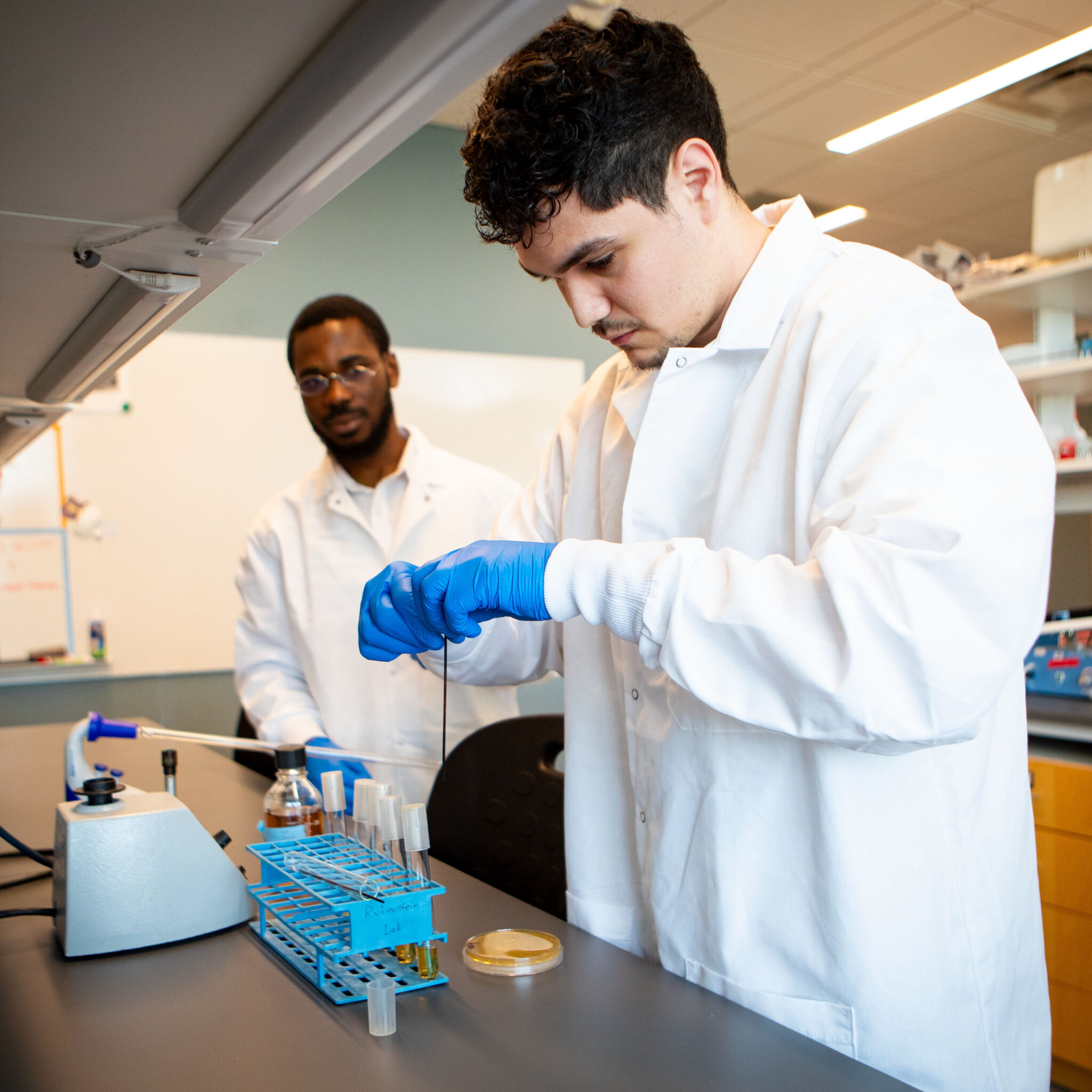Interest in true crime investigations has never been higher, thanks in large part to podcasts, documentaries, books, and more. This enthusiasm has expanded to the labor force.
According to the U.S. Bureau of Labor Statistics, positions for forensic science technicians in the United States are projected to grow 13% from 2022 to 2032 – much faster than the average for all occupations. An estimated 2,600 openings for forensic science technicians are projected each year through 2032.
Ball State is capitalizing on this demand by offering a new Bachelor of Science in Forensic Sciences this fall. The program will focus on using science to investigate crimes, enforce government regulations and resolve civil disputes.
“This idea was somewhat born of the pandemic; I had been watching way too many episodes of ‘Bones’ and ‘Criminal Minds,’” says Dr. Jill Coleman, associate dean of the College of Sciences and Humanities. “I thought, ‘If there’s that much interest in the world, then I’m sure students would want a program like this.’ Speaking to the faculty and various departments like criminal justice, criminology, biology and chemistry, it turns out there was a demand for a program like ours.”
Coleman assembled faculty from five departments to create a program unique to Ball State, including Dr. Benjamin Gibbs, chair of the Department of Criminal Justice and Criminology. “The curriculum is one major,” says Gibbs. “Students can eventually self-select into one of four concentrations: behavioral forensics, digital forensics, forensic biology and forensic chemistry.”

Each concentration provides specialized training:
Behavioral Forensics focuses on forensic psychology, preparing students for careers in probation, parole, community and institutional corrections, case management, law enforcement, and addiction counseling.
Digital Forensics trains students in digital evidence collection, preservation and analysis, equipping them to work on cybercrime cases, identity theft, cyber attacks and data preservation.
Forensic Biology teaches students to collect and analyze crime-scene evidence using cellular and molecular biology tools, particularly for forensic DNA and biological evidence analysis.
Forensic Chemistry applies chemical analysis to real-world crime scenes, lab examinations and courtroom testimony, making an immediate impact on criminal investigations.
Ball State’s comprehensive approach sets the program apart from other in-state universities. “Students, whether they’re in biology, chemistry, digital or behavioral, will get a little taste of all four areas that comprise forensic sciences,” says Coleman.
The goal is to create job placement opportunities within Indiana. “Students will be educated in a way that they will be ready for a job after their bachelor’s degrees are completed,” says Gibbs.
The department has relationships with the Delaware County High Tech Crimes Unit, the Indiana State Police and their criminal labs, and the Marion County Coroner’s Office, all of which require highly skilled workers.
“The thing about our program is it was born as a direct response to student demand,” says Coleman. “Previously, students piecemealed their programs from a combination of majors and minors. What we’ve created here is a streamlined curriculum.”

Even before announcing the new major for the fall, the introductory forensics course filled up so fast that the department had to open a second section. Gibbs says they’ve already had some students declare forensic science as a second major, and he expects freshman interest to continue growing as the fall semester progresses.





